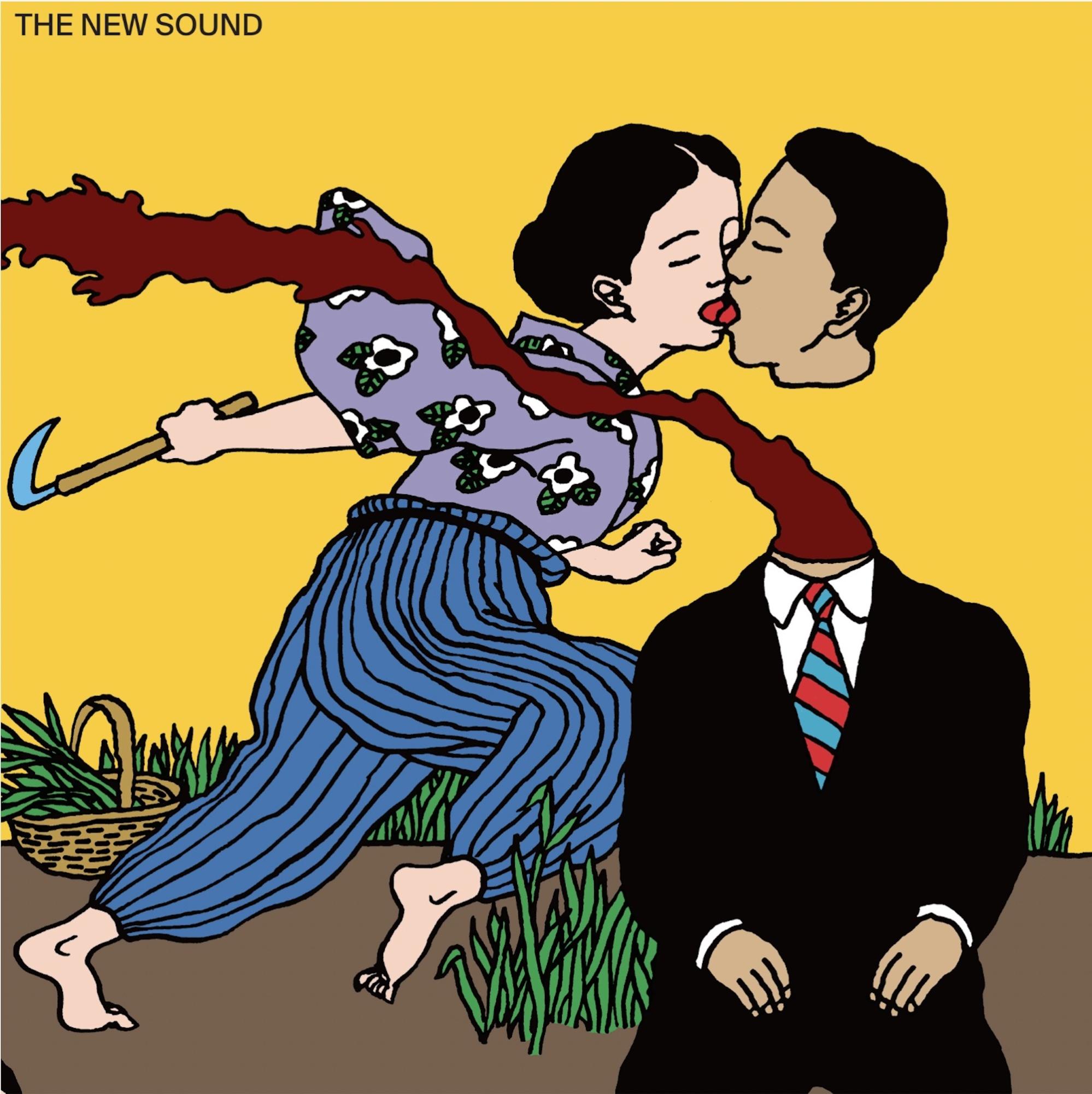On his solo album debut, “The New Sound,” Geordie Greep quite aggressively exclaims, “you can cum more than a 100 stallions” during the first track, “Blues,” which gets you in an appropriate mindset for the record.
Greep, for the last seven years, had been a founding member of the art-rock band, Black Midi, until the sudden news in late August 2024 that they would be on an indefinite hiatus. Coinciding with their breakup, Greep had announced the release of his solo debut, “The New Sound,” which paints a portrait of a seemingly consistent character from song to song, in a series of stories narrated by said character.
 On this new album, Greep does not stray far from the jazz fusion and art-rock style that Black Midi had established in their four-album run as a band. He still manages to build off the ideas of his previous works, most notably delving hard into implementing Latin rock for his newest record. There are a number of Latin styles and instruments Greep utilizes on “The New Sound,” particularly the inclusion of bongos throughout the record.
On this new album, Greep does not stray far from the jazz fusion and art-rock style that Black Midi had established in their four-album run as a band. He still manages to build off the ideas of his previous works, most notably delving hard into implementing Latin rock for his newest record. There are a number of Latin styles and instruments Greep utilizes on “The New Sound,” particularly the inclusion of bongos throughout the record.
The strong blend of these musical styles is very much in the likes of Talking Heads and Frank Zappa with Greep even mentioning in a 2024 interview his adoration towards Zappa, saying, “I like the music and the attention to detail. He did 60 albums in 30 years, there’s something to that, his uncompromisingness.”
The math-rock adjacent song “Blues” opens the album with quickly paced drums that are driving the song and causing Greep’s vocals to gradually grow increasingly more intense with every line that sounds as if the singer is speaking to himself in second person. Lines such as “you have a bigger dick than any man who’s ever lived” exude deep insecurity in the man. The opener is an internal pep talk that gives us insight into this character who needs constant validation.
Lyrically, Greep’s new album reads like a continuous stream of consciousness from a desperate narcissist with a high libido, who is pouring out the seams with insecurity and has a compulsive need to let everyone know the impressiveness of his existence. On the energetic and scatter-brained single for the album, “Holy Holy,” Greep’s goals of conveying this character’s desire for attention and praise come off quite overtly. The character professes to a woman at a bar that not only was he able to read her and how easy it would be to have sex with her from the moment she walked into the room, but also starts bragging about how everyone including “revolutionaries” and “Jihadis” says that he is “holy.”
On “Through a War,” Greep writes: “You gave me nothing but an incurable disease for which I am glad, you’ll always be with me.” He likens a sexual disease to a memento of a past lover. Romanticizing it further, he claims, “with each itch of my loins, the music of your voice,” painting an image of how the man singing is truly broken.
Over the whole album, Greep satirizes concepts including toxic masculinity, “player” culture, and sexual longing. While most of these topics are viewed comedically through the over-the-top ramblings provided by the hyperbolic narrator, they do not feel like they are critical without massive amounts of empathy and nuance.
On tracks such as “Motorbike,” the album displays loud cacophonies of noise to an unsettling degree putting you in the mindset of the album’s main character. You are easily able to access the singer’s panicked and irrational state of mind after a breakup. The wrath and embarrassment he feels from being broken up with singularly motivates him. There is urgency in the song’s verses, creating a unique symphonic illustration of his actions.
This feeling of Tom Waits-esque, cabaret-like storytelling extends to the song “Walk Up” where you have more comedic lines that paint explicit visuals further exploring Greep’s fascination with this character’s various sexual diseases: “Check your balls for lumps once they’ve left. What’s that itch? Is that new?”
On the back half of “The New Sound,” Greep allows the listener to see a more vulnerable and accessible side of the character portrayed in the album’s garland of stories. “As If Waltz” is one of the most sensitive performances on the album, giving us tender and unguarded lyrics describing, through a Sinatra-like soliloquy, the singer’s dire desire to be with a prostitute longer than the hour that he paid for. It is a surprisingly honest and devastating display that shifts the tone of this album for the remaining songs. The singer proclaims his wants and longings for a woman whom he has solely paid for sex, illustrating how he longs “to see [her] without makeup, to hide in [her] closet and see [her] at work, to see if the rest are like [him], to stay behind after and hear all the gossip.” This is where his emptiness in the album peaks. The character is faced with a glass wall preventing him from getting the companionship he desires while being close enough to it that he crashes in the remaining songs on the album.
All of this culminates with Greep going all in on the Sinatra mantra and finishing the album with a cover of the Frank Sinatra song “If You Are but a Dream.” Greep brilliantly recontextualizes this song to fit in the milieu of his album. He implies that the character we have been hearing go on perverted rants about sexual escapades — while contradictorily mentioning his longing for meaningful intimacy — only acts the way he does due to a mentally taxing, unrequited love that weighs on his mind constantly. The inclusion of this song also frames the way the man feels about himself, showcasing his situation like he’s a heart-sore, jazz-pop protagonist.
Admittedly, this album is not without issues. For one, “The New Sound” loses creative steam very quickly in the middle of the album before the closing four tracks ensue and pick the pace of the record back up. The middle four songs blend together musically on a first listen and all feel like the same jazz-fusion ideas being reworked for each song, leaving them to feel not fully-realized. More so, they feel like first drafts rather than completed songs. Additionally, the pacing of this album feels very lopsided, the center of the album contributing to this. Perhaps the record could have been cut short from its hour and three-minute runtime to create a tighter collection of songs leaving the listener wanting more rather than being tired by the end.
Geordie Greep has proved that without the aid of his other two band members he is just as imaginative and ambitious as ever and still willing to venture into new areas of musical innovation for his songwriting. At 25, Greep is capable of writing about complicated, taboo topics with large amounts of nuance presenting a show-don’t-tell approach to his commentaries throughout “The New Sound.” His new record sounds incredibly fresh and singular from anything else coming out and the album seems like it will only get better and more relevant with age. It is a strong and confident solo debut that is one of the best of the year so far.







